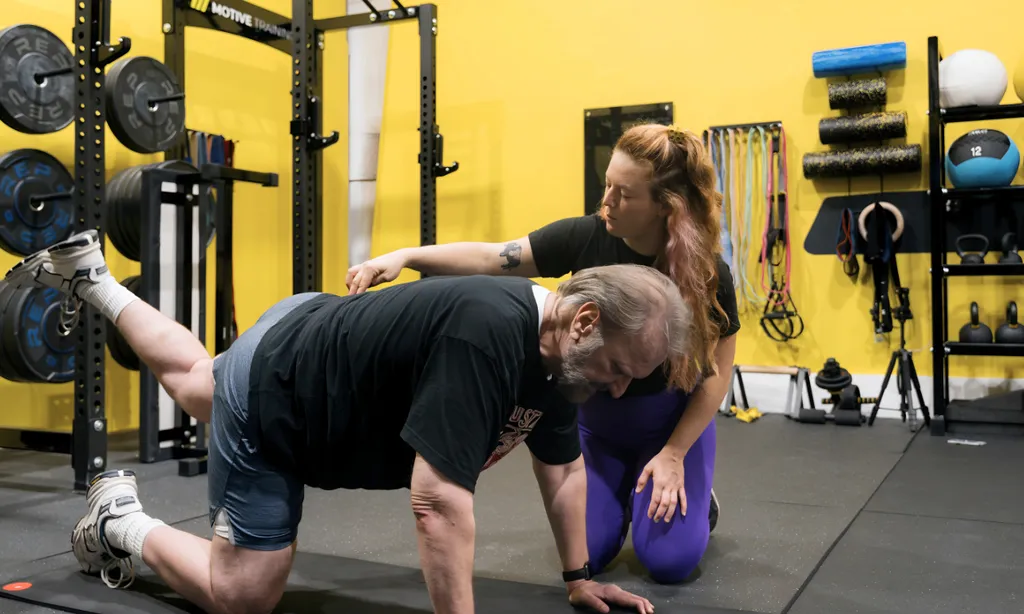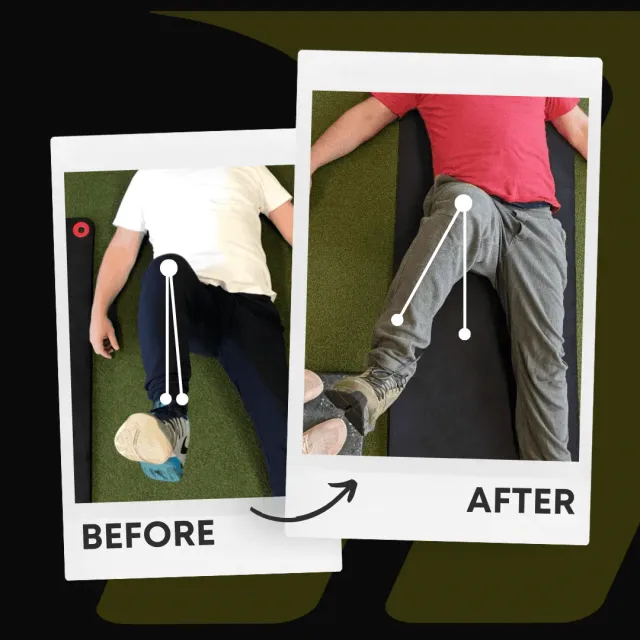Effective Strategies For Pain Mitigation: A Comprehensive Guide
January 1, 2025 | Pain Management

Understanding Chronic Pain
Chronic pain is a complex condition affecting millions worldwide, significantly impacting daily life and overall well-being. It can arise from various causes, including injuries, illnesses, and medical conditions such as arthritis or fibromyalgia. Understanding the underlying causes of chronic pain is crucial in developing an effective pain management plan.
Chronic pain often has a substantial emotional impact, leading to anxiety, depression, and stress. Mental health issues can exacerbate the pain experience—emotions such as anger, sadness, and despair can make pain feel more intense. A comprehensive pain management approach should address both the physical and emotional aspects of chronic pain, ensuring a more holistic healing process.
Soft Tissue Therapy For Pain Relief
Soft tissue therapy is a targeted clinical massage designed to reduce tensile and compressive stress on the body, promoting healing and alleviating pain. While traditional massage therapy is often a relaxation technique, soft tissue therapy is a more specialized approach, focusing on rehabilitating muscles, ligaments, and tendons.
This powerful therapy can significantly reduce pain levels, with relief often felt after just one session. Soft tissue therapy’s role in pain management is pivotal, as it plays a crucial part in rehabilitation and muscle manipulation. It is particularly effective for treating conditions such as muscle pain, back pain, and arthritis, offering a ray of hope and reducing discomfort.
Regular soft tissue therapy sessions can lead to long-term pain relief and significantly enhance overall well-being. Patients and clients are encouraged to incorporate this therapy into their routine to experience sustained benefits. For instance, foam rolling is a sound pain mitigation technique if you know what you’re doing.
Managing Muscle Tension
Muscle tension is a common contributor to chronic pain, and managing it is essential for effective pain relief. Techniques such as stretching, strengthening, and targeted pain-relieving exercises can help alleviate muscle tension. Physical therapy can also be beneficial, improving movement and function while promoting relaxation.
Regular exercise plays a crucial role in managing muscle tension. It improves muscle tone, strength, and flexibility, which in turn helps reduce pain over time. Mind-body therapies like relaxation techniques, meditation, and guided imagery are also helpful in managing muscle tension, assisting individuals to relax both physically and mentally.
When Pain Gets Worse
It’s essential to reassess your pain management plan when symptoms worsen. Pain clinics specializing in treating persistent and intractable pain offer a multidisciplinary approach that combines physicians, psychologists, and physical therapists. This team can recommend additional treatments or interventions to address intensifying pain.
Communicating with healthcare professionals when experiencing increased pain or changes in symptoms is essential. The pain management plan should remain flexible, adjusting to evolving needs. Alternative approaches, such as acupuncture or bioelectric therapy, may also be considered to manage pain during flare-ups.
Alternative Approaches To Pain Management
Alternative pain management techniques, such as acupuncture, bioelectric therapy, and mind-body therapies, can effectively reduce pain and complement traditional pain relief methods. Acupuncture involves inserting fine needles into specific body points to promote natural pain relief.
Bioelectric therapy uses electrical impulses to block pain signals from reaching the brain while stimulating the body to produce chemicals that reduce pain. Mind-body therapies like hypnosis and self-hypnosis help individuals refocus and transform their perception of pain, making it less overwhelming.
When combined with conventional treatments, these alternative therapies can help reduce the reliance on pain-relieving medications, contributing to a more balanced and practical pain management approach.
Creating A Personalized Pain Management Plan
A personalized pain management plan should be tailored to an individual’s needs and goals. Collaborating with healthcare professionals is not just important, it’s essential in crafting a comprehensive plan that integrates various treatments and interventions, providing the necessary support and guidance.
The plan should incorporate strategies for pain management, stress reduction, and overall well-being. Regular follow-up appointments with a healthcare professional are not just recommended, they are essential to ensure the plan remains effective and to make necessary adjustments, providing a sense of reassurance and care.
A well-rounded pain management plan should also include lifestyle changes, such as regular physical activity and a healthy diet, to improve overall health and support long-term pain relief.
Working With A Personal Trainer At Motive Training
A personalized fitness plan can play a key role in managing chronic pain, and working with a personal trainer at Motive Training allows you to design a program tailored to your specific needs and goals. For example, if you are recovering from an injury or looking to improve your overall mobility and strength, a qualified personal trainer can guide you through exercises that promote healing and pain relief.
At Motive Training, our trainers are skilled in Functional Range Conditioning (FRC) and KINSTRETCH, specifically designed to improve joint health and mobility. These approaches can help alleviate pain and prevent future injuries by focusing on building strength and flexibility. Motive Training trainers take a holistic approach, considering your current physical condition, injury history, and pain levels when designing a customized fitness plan.
Regular one-on-one sessions with a personal trainer can help you track progress and adjust your program as needed to ensure continued success. If you are managing muscle tension, recovering from surgery, or working to improve overall functionality, having a professional trainer by your side ensures you perform exercises correctly and safely, which is crucial for achieving long-term pain relief.
Working with a personal trainer at Motive Training is not just about exercise; it’s about creating a comprehensive, sustainable approach to pain management that complements other therapies and interventions you may be using.
Lifestyle Changes For Pain Management
Adopting lifestyle changes is crucial for managing chronic pain. Regular exercise is one of the most effective ways to reduce pain by improving mood, reducing stress, and increasing relaxation. It also promotes better muscle tone and flexibility, which can help alleviate pain over time.
A balanced diet plays a key role in managing pain. Anti-inflammatory foods can reduce swelling and promote healing, while adequate hydration ensures the body’s tissues stay healthy. Sleep is another critical factor—getting enough restorative sleep helps the body recover and reduces pain levels. Practices like meditation and deep breathing can help lower stress and support pain management.
Identifying and avoiding pain triggers, such as specific foods or physical activities, is also essential in managing chronic pain.
Nutritional Strategies For Pain Management
Nutrition plays a vital role in managing chronic pain. Incorporating specific foods into your diet can help reduce inflammation and alleviate discomfort. Here are some key strategies to consider:
- Omega-3 Fatty Acids: Found in fatty fish, flaxseeds, and walnuts, these anti-inflammatory fats help reduce pain and inflammation.
- Antioxidants: Vitamins C and E and beta-carotene help reduce oxidative stress and inflammation that may contribute to pain.
- Magnesium: This mineral, found in leafy greens, nuts, and seeds, promotes muscle relaxation and helps reduce muscle tension.
- Turmeric: Curcumin, the active compound in turmeric, has potent anti-inflammatory properties, aiding in pain reduction.
- Ginger: Known for its anti-inflammatory properties, ginger can help ease pain and swelling.
- Probiotics: Beneficial bacteria found in yogurt and kefir can help regulate the immune system and decrease inflammation.
- Vitamin D: Important for bone health, vitamin D can also help reduce pain and inflammation.
Avoiding trigger foods, such as gluten or processed items, can also help manage pain. To maximize the impact of these dietary strategies, it is recommended that you work with a healthcare professional or nutritionist to tailor a diet plan.
Mind-Body Therapies For Pain Management
Mind-body therapies are effective tools for managing pain and stress. Techniques such as relaxation, meditation, and guided imagery help individuals develop coping skills to manage chronic pain. Regular practice of these therapies can lead to long-term pain relief by helping reduce anxiety, depression, and stress—common companions of chronic pain.
Mind-body therapies promote overall well-being and empower individuals to regain control over their pain, improving their quality of life.
Medications And Interventions For Pain Management
Medications and interventions, such as pain relievers and injections, are often necessary to manage pain, especially in cases of severe or persistent discomfort. However, it’s important to use these treatments carefully and under the guidance of a healthcare professional.
A pain management team may recommend a combination of medications, physical therapy, and other interventions to address the root causes of pain. Regular communication with healthcare providers is crucial for ensuring treatment effectiveness and addressing any potential side effects.
Overcoming Barriers To Pain Management
Many individuals face barriers to effective pain management, such as lack of healthcare access, financial limitations, or stigma associated with chronic pain. Overcoming these obstacles requires persistence, education, and support.
Educating yourself about available pain management options, seeking guidance from healthcare professionals, and having the support of family and friends can help you navigate these challenges. Working together with a healthcare team to develop a comprehensive pain management plan is crucial for overcoming these barriers.
Working with A Healthcare Professional
Collaboration with healthcare professionals is essential for developing an effective pain management plan. A multidisciplinary team that includes pain specialists, physical therapists, and psychologists can provide a holistic approach to pain management.
Regular check-ins with healthcare providers are important to evaluate treatment progress and make adjustments when necessary. Open communication about pain levels, symptoms, and any challenges in managing pain will help ensure the best possible outcomes.
Conclusion
Effective pain management involves a comprehensive approach considering physical, emotional, and lifestyle factors. A personalized plan should incorporate a combination of treatments such as soft tissue therapy, medications, and lifestyle changes. At Motive Training, we understand the importance of relief and comfort. That’s why we create customized fitness programs that not only relieve tension, reduce aches, and improve joint health and mobility, but also provide a sense of reassurance and ease. Every step you take with us is designed to ease your pain and build a foundation for long-term relief.
By working with our experienced and certified trainers, you can develop a plan tailored to your specific needs, whether you’re managing chronic pain, recovering from an injury, or working to prevent future issues. Through Functional Range Conditioning (FRC), KINSTRETCH, and other proven techniques, Motive Training helps improve strength, flexibility, and mobility—key components of reducing pain and improving overall function.
Addressing emotional well-being and overcoming barriers to care is crucial to your success. At Motive Training, we understand this and provide the support and guidance necessary to help you manage pain effectively. Our team is dedicated to your well-being, ensuring you feel supported and cared for every step of the way. By taking a proactive, holistic approach to your health at Motive Training, you can manage chronic pain more effectively and regain control of your overall well-being and quality of life.
Let us help you treat pain, reduce nerve pain, remove dull aches, and get you doing everyday activities to the best of your ability. That’s what we do best!
Written by

Motive Training Staff
We’ll teach you how to move with purpose so you can lead a healthy, strong, and pain-free life. Our headquarters are in Austin, TX, but you can work with us online by signing up for KINSTRETCH Online or digging deep into one of our Motive Mobility Blueprints.




